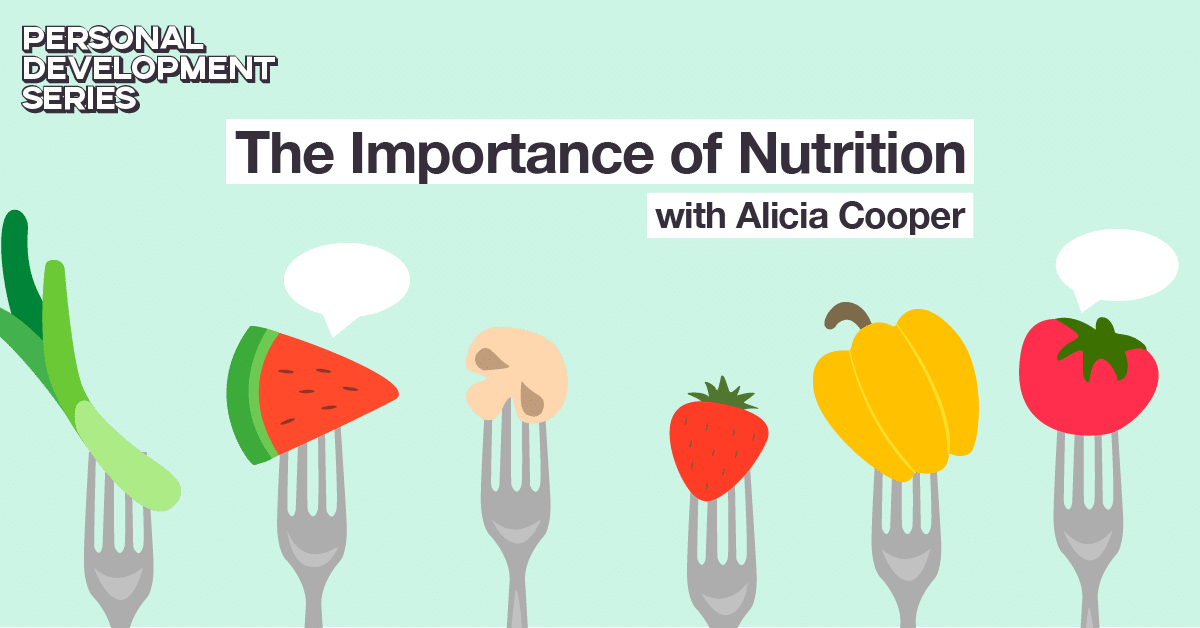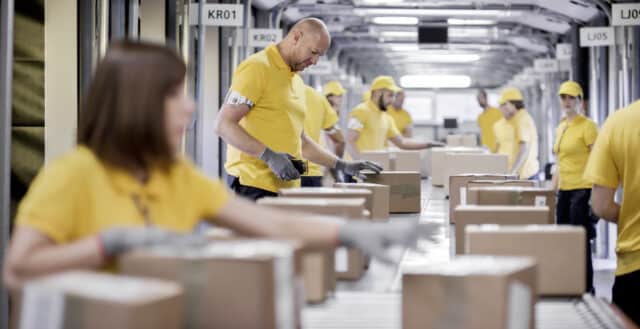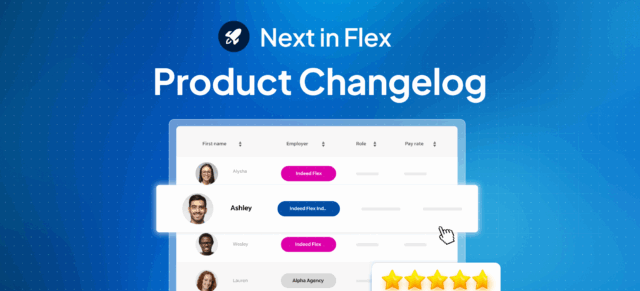

Indeed Flex’s Personal Development Series: The Importance of Nutrition With Alicia Cooper
We know our community loves food and unsurprisingly Come Dine with Indeed Flex is one of our most popular talking points within our Facebook community. Whether you love to cook or are looking to make improvements to your diet and lifestyle, we believe everyone should be aware of the importance of nutrition. It’s important we understand how a balanced diet can help us not only with our everyday lives but how it fuels our working day. Shift work is known to be a challenging environment to work in and prepare for at times and sometimes having a healthy nutritious meal is the last thing on people’s mind when they get home from a long shift.
We spoke to the wonderful Alicia Cooper, freelance nutritional therapist, founder of Life Box Food and former waitress, to understand the role food plays in our day and how it can aid our work and lead to a healthier balanced lifestyle.
Whether you are a culinary chef, a cleaner, or working in the industrial space, we can all learn and be reminded of the importance of looking after yourself and your body.
Take it away Alicia!
How are you doing Alicia? Let’s start by introducing yourself to the community, your background and what you currently do?
Hi all. My name is Alicia and I am a freelance nutritional therapist, development chef and FMCG (fast moving consumer goods) consultant. My career started unexpectedly during uni holidays. It was my first day working as a waitress at a National Trust property when the pastry chef quit in very dramatic fashion. As you can imagine, panic ensued, so many tour buses, not enough scones – it was a desperate situation. Being an avid baker, I somehow managed to bag the job and for the rest of the summer I was in chef whites. It sparked a love of cooking that has formed the basis of my career over the last 8 years. I now run my own freelance business developing recipes for brands and retailers and providing nutritional advice. In a month’s time I will be completing a BSc in Human Nutrition. (Very impressive Alicia!)
I am also the owner of Lifebox Food Co. We are the lead selling health & wellbeing subscription box in the UK. Every month we curate a new and delicious snack box that goes out to all of our subscribers and one-off customers. All the boxes are vegan & gluten-free and nutritionist approved.
What effect does diet have on your performance at work?
What you eat throughout the day can have a significant effect on energy levels, mood, concentration and productivity. It ultimately boils down to blood sugar regulation – too much sugar and you’ll have an energy high, but what comes up must come down and that’s when you have a slump. It’s most common to have these mid-morning and mid afternoon if your meal choices have perhaps been a bit too heavy on the carbs/sugar.
By eating three balanced meals a day – each including a source of protein, healthy fats and complex carbs – it can help to keep blood sugar stable, preventing any energy lows that leave you feeling groggy, foggy and irritable. ‘Hanger’ has become a widely recognised term because having low blood sugar can really affect your mood – I’m sure we can all say we’ve experienced it at one point. So making an effort to never let yourself get to that point can have a really beneficial impact on work performance and mood – two things that really go hand in hand.
Choosing a high protein breakfast such as scrambled eggs & avocado or tofu if you’re vegan, over a carb-laden option is an important step to fuelling your body through a long work day. Protein & fat digest at a much slower speed than carbs so will also leave you feeling fuller for longer – no more mid-morning snacks or coffees required!
Try to set aside time even if it’s just a few minutes to eat your lunch. Load up on colourful vegetables, whole-grains and a source of protein such as lentils, beans or fish. Whole-grains are slow-release carbohydrates, giving you the mental energy you need to get through a long afternoon, vegetables are full of nutrients you need to feel your best and beans/lentils/fish are a great source of protein.
Keeping food light during the day is important too – eating a large carbohydrate or meat rich meal will often send people to sleep afterwards as the body needs to use more energy for digestion. So save that for dinner when you’re in close proximity to your bed
What advice do you have for someone looking to positively change their eating habits and diet?
Start small and set realistic goals. Small changes can have a big impact on your health & wellbeing.
Drinks are a great place to start. If you’re a big coffee or tea fan, try to limit it 1-2 x a day – caffeine can wreak havoc on your energy levels. Opt for your coffee or tea black or with a dash of milk – try to go without sugar. Or even swap with green tea if you fancy.
If you’re a fan of fizzy drinks, try to cut them out slowly and instead opt for sparkling water with a fruit cordial or a squeeze of fresh citrus juice. Set yourself a water goal everyday – 2 litres should be the minimum. You’ll find by making small changes to your drink choices throughout the day, you can reduce unnecessary calories and sugar.
When it comes to food, think inclusion rather than exclusion. Start by challenging yourself to increase your fruit and vegetable intake – 10 a-day is the new 5. Experiment with new flavours, ingredients and recipes. Too often people think dieting is the only option and they start restricting their intake and removing food groups – this isn’t sustainable and often leads to people ‘falling off the wagon’. It is well known that if you ban a food you love, you’ll only end up craving it more. So enjoy your favourite takeaway, just less frequently. Load up the rest of your meals with lots of fresh fruit, veggies, whole-grains, fish, seafood, nuts and seeds. There’s no need to go hungry!
What tips do you have for eating nutritiously and healthy food while being a shift worker?
Probably the best advice I can give is to plan ahead. If you know you have a long day coming up, make sure you have some healthy snacks (see below for ideas) that can help stave off hunger if you’re working for long periods without proper breaks. The biggest handbrake when making healthy choices is having low blood sugar and being really hungry – this is only going to mean you pick fast-release energy options that are often high in sugar and processed carbohydrates. So by keeping your hunger at bay throughout the day with nutritious snacks, will mean that when your break finally comes round you can pick your meal with clarity.
If you have time, bringing your own lunches is a great idea – see below on how my food prep tips that make home-made lunches more manageable. If that isn’t an option, a good rule to live by is to eat the rainbow. Choosing colourful options full of different fruit and vegetables is the easiest step to eat nutritious food! Use that as your guide and try to limit beige, white or brown foods.
What types of food would benefit those workers long hours and don’t have time to prepare big meals?
When you’re working long hours, quality protein, complex carbohydrates, plus fruit and vegetables are your best friends. Loading your plate with slow-release foods will help fuel you through the day and keep any blood sugar crashes at bay.
Some of my favourite high energy foods include:
Bananas, apples, oats, hummus, eggs, sweet potatoes, almonds, edamame, natural yoghurt and roasted seeds.
Try to avoid eating processed foods as they are a short-term energy solution that will leave you feeling tired and hungry shortly afterwards.
What 5 healthy snacks would you recommend that have energy-boosting properties?
My favourite healthy snacks that are perfect to sustain you during a busy day are:
- An apple and peanut butter. You can pre-slice the apple and get a little tupperware for the peanut butter so you can tuck in whenever you’re ready!
- A banana and a handful of unsalted nuts.
- Hard-boiled eggs or egg muffins – so simple to make and so delicious. Simply crack a few eggs into a bowl, add some colourful veg e.g. tomato, spinach, peppers and season. Bake in the oven for 10 mins until firm to the touch.
- Home-made flapjacks – slow release carbohydrates found in oats, nuts and seeds make these a great choice. If you make them yourself you can control how sugary they are, plus you can make a big batch and they’ll keep for over a week in an airtight container.
- Beef jerky or biltong.
All the above snacks can be prepped ahead and eaten on the go. It is important to partner fruit with a protein/fat such as nuts because they slow digestion and prevent any blood sugar crashes so you don’t feel hungry again shortly afterwards!
Any advice on meal prepping for beginners?
Start small. Meal prepping can be an amazing way to eat well, when you are really limited on time. But it can feel overwhelming and unappealing to use your free-time cooking for weeks to come! So I would recommend two things. The first is always make double – whatever you’re cooking for lunch or dinner – just make twice the amount. Then when you serve up, one portion is to eat now and the other can go straight into the fridge or freezer until it’s needed. This is a great way to fill your freezer, without even really noticing.
The second recommendation is to start with the staples. I personally enjoy eating something different most days, so meal prepping 7 days worth of the same dinner wouldn’t work for me. Instead, I prepare the essentials – things like brown rice, quinoa, couscous, roasted vegetables and sauces. Simply cook in bulk, cool and then divide into individual portions – these can then live in the freezer so whenever you need them they’re ready and waiting. This can shave a huge amount of meal-prep time but still gives you the freedom to indulge your cravings!
Do you recommend any websites for easy, quick, and healthy recipes?
I’m a huge fan of BOSH – they’re two vegan guys that create really delicious but uncomplicated recipes that always appeal to both vegans and meat-eaters alike.
Jamie Oliver continues to be a favourite, his website is crammed with recipes to suit all tastes and skill-sets.
What tips do you have for those who struggle to eat 3 meals a day?
Interestingly eating 3 regular meals a day is something a lot of people struggle with. Life has changed considerably in the last decade, we now eat on-the-go more than ever, and snacking is a billion pound industry.
If you’re one of those people that doesn’t feel hungry in the morning but needs a coffee to get started, you’re definitely not alone. It can be difficult at first, but try to push back your morning coffee until mid-morning and try to eat something before you go to work – even if it’s just a handful of nuts or a banana. Overnight our bodies go into a fasted state and breakfast is named for that reason – we are breaking our overnight fast. If you start your day with no food but caffeine instead, this can cause our stress hormone cortisol to rise considerably – causing excessive hunger across the day and causing us to store more abdominal fat.
We have become so used to eating on the fly that we have lost a sense of ritualism when it comes to mealtimes. Taking the time out to eat your food is beneficial for both your digestion and also your mental health. Mindful eating is a new trend that is proven to be very beneficial. It involves taking 10-20 minutes to eat your lunch or dinner where you fully engage in eating, you chew slowly, really taste your food, notice the smell and sensory aspects. Removing any electronic distractions and really savouring the moment. Not only does this help your body relax so it can digest properly but it is also a form of meditation for people that are short of time.
If you’re finding you’re not hungry when meal-times roll around, try to ease back on snacking between meals. You should allow for 3-4 hours before mealtimes to ensure you can digest optimally.
Where can people follow and find you?
- Check out Alicia’s Instagram here
- Check out Life Box Food here
- Follow Life Box Food on Instagram here
A huge thank you to Alicia for sharing incredible insights into the world of nutrition and how it can help all of us, no matter the lifestyle or job role. We hope you found her takeaways and tips useful.
Make sure you check the Indeed Flex blog for regular updates and personal development content.
If you have Facebook and would like to join the Flexer Facebook community, please join here.
Are you following us on Instagram?
Have you liked our Facebook Page?








